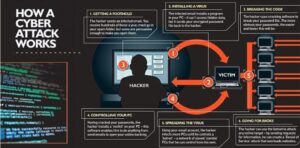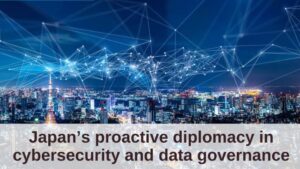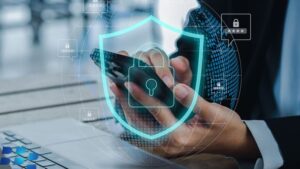Understanding the UN Open Ended Working Group on Cybersecurity
There is an increase in cyber threats that only global cooperation can match. The latest in this effort to convene nations to develop international rules for cybersecurity is the UN Open Ended Working Group on Cybersecurity. Japan, a country among the world’s leaders in technology, plays a central role in drawing up those policies.
The Purpose Behind Its Formation
The UN Open Ended Working Group on Cybersecurity was created to address rising cyber risks. Its goal is to develop global strategies, prevent cyber conflicts, and ensure a secure digital future.
How It Shapes Global Cybersecurity Policies
This group works on creating international agreements, improving cyber laws, and strengthening defenses. Japan actively contributes by introducing new security measures and promoting ethical cybersecurity practices.
Why Japan’s Participation Matters
One significant player in this regard is Japan, which has a lot of knowledge and technology in cyber defense. Its strategies help build stronger international cybersecurity frameworks. Without Japan’s involvement, global cyber policies would lack essential innovation and security measures.
Stay with us as we explore the top developments in Japan the UN Open Ended Working Group on Cybersecurity 2025 and their global impact.
Japan’s Role in Strengthening Global Cybersecurity
The threat of cybercrime continues to change, but Japan has established its place within the global fight against this scourge. The nation has state-of-the-art technology and proactive policies that would see positive contribution toward international cybersecurity. Japan is creating global rules through the UN Open Ended Working Group on Cybersecurity, building cooperation, and making strides in boosting digital security around the world.
Key Cybersecurity Initiatives by Japan
First of all, Japan did quite a lot for the nation’s cybersecurity, and as such, such moves included several ways to protect critical systems from cyber threats and cooperation with international organizations.
- The New National Cybersecurity Strategy for 2025 – Japan’s renewed cybersecurity policy aims at bolstering defense against cybersecurity threats. The renewal comes with a number of provisions, including data preservation laws, AI-based threat detection, and other awareness programs to ensure cyber vigilance among citizens.
- Cyber Defense and Collaboration with the Private Sector – It’s public-private partnership bringing such offers involving the government with major cyber technology and cybersecurity firms within which each of the parties sets to benefit from the arrangement. So far, joint partners are developing advanced security tools and quick response measures for cyber incidents.
- Critical Infrastructure Protection – These include energy, health, and financial well-being. Most of the protection measures include excellent encryption, monitoring through artificial intelligence, and real-time serious threat analysis.
International Partnerships and Alliances
Japan is well aware that cybersecurity represents a truly global challenge that must be met with international cooperation. Japan the United Nations Open Ended Working Group on Cybersecurity 2025 is therefore a member of the UN Open Ended Working Group on Cybersecurity to feel free to contribute in any way toward creating policies around the world and building cyberlaws.
- Collaborating with the USA and EU: Japan has firmly set up its cybersecurity partnerships with the USA and the European nations to share intelligence, carry out joint drills in cyberspace, and develop security technologies.
- India is initiatives for the south east Asia cyber security network: Japan spearheads the efforts to secure the Indo-Pacific, collaborating with other countries like Australia, India, and South Korea in fighting cyber threats and creating secure digital infrastructures.
- Aid to Less Affluent Nations: Aside from that, Japan the United Nations Open Ended Working Group on Cybersecurity 2025 offers developing countries assistance in training and providing technical support on cybersecurity issues.. In boosting developing countries’ capacity for cyber resilience, Japan is also fortifying global security against cybercrime and digital warfare.
Japan’s Stance on Digital Sovereignty
Digital sovereignty is crucial for a lot of countries across the globe because they face increasing threats from cyberspace. Japan believes in overhead control over its digital infrastructure with an opening and secure internet.
- Strengthening Data Protection Laws – Japan the United Nations Open Ended Working Group on Cybersecurity 2025 has made stricter regulations to acquire data privacy and stop unauthorized access to vital information. Their Personal Information Protection Act (PIPA) follows international standards like GDPR.
- Moving Away from Foreign Technology – Japan invests in domestic cybersecurity so that it reduces reliance on foreign software and hardware. National security and possible vulnerabilities in systems imported are improved.
- Proposing Ethical Cybersecurity Practice – With its major participation in the UN Open Ended Working Group on Cybersecurity, Japan the United Nations Open Ended Working Group on Cybersecurity 2025 would drive the adoption of ethical cybersecurity norms. It also promotes policies that inhibit cyber warfares, protect human rights in the online world, and ensure fair access to digital resources.
Such policies and partnerships symbolize Japan the United Nations Open Ended Working Group on Cybersecurity 2025’s commitment to reinforcing global cybersecurity. Hence, Japan plays an active role in contributing toward the making of a safer digital future by its inputs in the UN Open Ended Working Group on Cybersecurity. With more threats to cyberspace foreseen for 2025, the position of the Crazed Land in global cybersecurity will remain dominant for the security of cyberspace and ensure resilience in it.
Be with us to learn more about the important developments regarding the cybersecurity profile of Japan!
Major Cybersecurity Policies and Regulations in Japan (2025 Update)
As cyber threats evolve and become ever more sophisticated, so will Japan’s continued refinement of its cybersecurity policies in their pursuance of protection to national security, businesses, and citizens. In 2025, altogether with the progress of more stringent cybersecurity regulations as per international standards but also addressing domestic security concerns, Japan the United Nations Open Ended Working Group on Cybersecurity 2025 will be one of those countries that will be able to go along with these developments. Through active participation in the UN Open Ended Working Group on Cybersecurity, Japan, while building up these defenses, is also able to influence global policies.
New Laws and Compliance Standards
Japan has enacted stricter legislative measures on cybersecurity, which provisions include the safeguarding of protectable sensitive data, the prevention of cybercrime, and compliance within varied industries. These new provisions are expecting to reflect Japan’s global commitment to a secure digital environment while adhering to the international cybersecurity norms.
- Amendments make Cybersecurity Basic Act-Revised (2025 Edition) – New legislation strengthens Japan’s national cybersecurity architecture as it mandates enumeration of advanced security provisions to organizations and government agencies and has introduced early reporting of cyber incidents.
- More Stringent Data Protection Rules (“PIPA Enhancements”) – The PIPA “Prevent Data Breaches” enhancement defines that all companies with general conditions of service must encrypt data for identification, limit access by third parties and also oblige them to register their data businesses activities under general accessibility requirements.
- Mandatory Cyber Risk Assessments for Certain Critical Sectors: The financial, healthcare and energy sectors have been specified as areas where periodic cybersecurity audits are mandatory to mitigate cyber attacks against critical infrastructure. It would attract heavy penalties and operational restraints.
- Cybersecurity Liability of Corporations: In 2025, Japan the United Nations Open Ended Working Group on Cybersecurity 2025 imposed laws making executives of corporations liable for significant hacks. Corporations must show that they have had concrete and proactive measures against hacking, ransomware, and insiders to prevent these types of intrusions.
Government Strategies to Prevent Cyber Threats
Japan has developed detail-oriented and comprehensive strategies to mitigate and prevent new threats in cyberspace stopping short of large-scale cyber incidents. These strategies include proactive defense, AI applications in security, and international cooperation.
- Artificial Intelligence in Cyber Defense – Japan invests money on cyber defense systems to collect, analyze and neutralize threats in real-time by an AI defense system. This system analyzes patterns of cyberattacks, and take action automatically for the possible breaches.
- Greater Alliance with Foreign Security Agencies-ll to share the threat intelligence and matured cyber resilience,Japan the United Nations Open Ended Working Group on Cybersecurity 2025 has activated and strengthened ties among INTERPOL, NATO, and those involved with cybersecurity industries.
- Better Cybersecurity Training Programs-These programs are part of Japan’s nationwide campaign to train citizens about the dangers of phishing and paying close attention to data privacy while handling sensitive information. It, too, will create awareness programs for government officials and general public.
- Japan’s National Cyber Emergency Response Team (CERT) is strengthening its computer emergency response teams in anticipation of ransomware attacks, digital espionage, and critical infrastructures. In this respect, these teams work with international experts in cybersecurity to avert cyberattacks.
The Impact of These Policies on Businesses
The tough cybersecurity policies imposed by Japan the United Nations Open Ended Working Group on Cybersecurity 2025 have started bringing a change in business conduct for 2025. The rules have demanded that companies assess new regulations, invest in robust security infrastructure, and prioritize cyber resilience.
- There Is Much More Money Employers Spend in Compliance Burden – They will, instead, spend much of their resources on cybersecurity compliance, employee training, and upgrading systems. Failure to comply leads companies to legal liabilities- reputational damages, and financially penalty.
- Higher Consumer Trust Equals Greater Data Security – With greater degree of data protection, businesses that prioritize cybersecurity will have the trust of consumers and a favorable reputation. From a customer’s perspective, the great protection offered by the fortified laws in Japan the United Nations Open Ended Working Group on Cybersecurity 2025 would add trust regarding personal data.
- Increasing Demand for Cybersecurity Professionals – Organizations have continued to recruit more cybersecurity professionals for the purpose of compliance and protection against cyber threats as regulations around cybersecurity become quite stringent.. Hence, the demand for ethical hackers, security analysts, and compliance officers has never been high.
- Cyber Insurances Are Now a Must Have – Companies in Japan the United Nations Open Ended Working Group on Cybersecurity 2025 are buying cyber insurances for mitigating the financial risks in case of cyber-attacks, with regard to which the insurance companies impose strict norms of cybersecurity for the businesses to follow before a given policy is granted.
Japan’s cybersecurity policies of 2025 establish new global standards for digital security and compliance, and commissioning the development of Japan’s cybersecurity future, with tight code regimes and AI-powered defense systems and with strong international partnerships, during the course of the UN Open Ended Working Group on Cybersecurity. These policies follow for the protection of national security while at the same time pushing the business sector to adopt higher measures for cybersecurity for our increasingly digital world.
Follow along as we dive into other major developments in Japan the United Nations Open Ended Working Group on Cybersecurity 2025, the UN Open Ended Working Group on Cybersecurity 2025, and how these developments will shape the future of cyber defense in the years to come.
Emerging Cyber Threats and Japan’s Defense Strategies
It has been observed that advances in technology introduce sophisticated cyber threats which target critical systems as well as national security and businesses across the globe. The Japanese government is a leader in this cybersecurity effort and is working on making recommendations to mitigate the threat through its participation in the UN Open Ended Working Group on Cybersecurity. Advanced defense mechanisms will be rolled out by Japan the United Nations Open Ended Working Group on Cybersecurity 2025 in 2025 that will keep its digital infrastructure secure and further promote the ultimate cyber stability globally.
Rise in Cyber Attacks on Critical Infrastructure
At present, the emergence of the cybercriminal and nation-state hacker is increasingly associated with attacks against critical components of a nation such as power grids, financial systems, transportation networks, and medical facilities. They often disrupt, bring losses, and have serious implications on the national security of the attacked country.
- Ransom Especially by Agencies of the Government – Cyber-hackers are locking the essential government functions as a ransom which is requiring huge payments. In 2025, Japan the United Nations Open Ended Working Group on Cybersecurity 2025 registered an increased number of ransomware campaigns for municipal offices and public-service platforms.
- Cyber Espionage on Japanese Tech Firms – Advanced foreign cyber espionage operations are draining the intellectual properties from its semiconductor, robotics, and AI industries in Japan the United Nations Open Ended Working Group on Cybersecurity 2025 that threaten its reins of future technologies.
- Supply Chain Attacks on Corporations. – Hackers have developed a technique whereby they leverage third-party vendors and software providers through unauthorized access routes into Japanese enterprises. This emerged as the major disaster towards multinational businesses.
- Disrupt Smart Cities and IoT Networks-The advancement of smart-cities infrastructure coupled with IoT dependence means that cyber-marauders will have no go or miss going into the hacking of traffic system, surveillance, and automated public services; leading to its national security implications.
How Japan is Countering Nation-State Threats
Japan has put in place more robust cyber defense programs to deal with threats from state-sponsored hackers. Working with international cyber organizations and intelligence agencies, Japan the United Nations Open Ended Working Group on Cybersecurity 2025 is strengthening its digital defenses through advanced security frameworks.
- AI-Powered Threat Detection Systems – Japan the United Nations Open Ended Working Group on Cybersecurity 2025 is deploying AI-driven cybersecurity tools that can hit back through real-time detection of attacks. Primarily, they utilize machine learning algorithms to predict and block cyber threats before they can inflict any injury.
- Cybersecurity Cooperation with Global Allies – Japan has been working along with the U.S., European Union, and Indo-Pacific countries to share threat intelligence, conduct joint exercises in cybersecurity, and build enhanced cyber defense strategies.
- The Japanese Government’s Increase in Cyber Defense – The Japanese government has intensified its Cyber Defense Command in substantially expanding manpower towards offensive and defensive cyber capabilities as a means of countering state-sponsored hacking groups.
- Foreign Technology under Stricter Regulations – Japan the United Nations Open Ended Working Group on Cybersecurity 2025 has introduced new cybersecurity regulations which restrict the use of foreign-created digital infrastructure. This decreases the chances of foreign interference with backdoor access and data breach.
- Japan Seeks a Larger Role in the UN Open Ended Working Group on Cybersecurity – Japan the United Nations Open Ended Working Group on Cybersecurity 2025 is actively seeking an implementation of global rules against cyber warfare, so there are also international laws to bring cybercriminals or state-sponsored hackers to justice.
Future Challenges and Risk Mitigation Plans
The cybersecurity advancements that Japan has made are commendable, but the number of emerging threats continues to challenge national security and businesses. These long-term government strategies on cyber resilience are to ensure that Japan will no longer be exposed to those risks.
- 5G and Quantum Computing Security Risks – Where the emergence of 5G networks and quantum computing has turned into new openings for risks, Japan has developed quantum-resistant encryption and strengthened its 5G networks to prevent cyber threats.
- Heightened threat of AI-generated cyber attacks – Attacks by hackers using AI-generated malware and deepfake phishing campaigns use the loopholes in traditional security. Thus, Japan the United Nations Open Ended Working Group on Cybersecurity 2025 is developing AI-powered security tools that will recognize and mitigate the AI-driven cyberattacks.
- Cyber Security Workforce Shortage – With the increase in cyber threat, the footprints of professional human resources are less in Japan at the moment. The government is launching new educational programs, cybersecurity training courses, and incentive packages for job placement, among other avenues for strengthening the country’s workforce.
- National Cyber Resilience Framework (2025) – This framework will cover a complete list of aspects that ensure a prompt return to normalcy after cyber incidents. It will, therefore, safeguard these sectors-financial,
Japan’s 2025 national cybersecurity strategy is building a global model for combating cyber threats for national security. By participating in the UN Open Ended Working Group on Cybersecurity, Japan the United Nations Open Ended Working Group on Cybersecurity 2025 is also working on stronger policies and international cybersecurity standards while protecting its own digital infrastructure.
While cyber-attacks keep evolving with time, Japan’s AI-dominated security infrastructure, global partnerships for prevention, and advanced measures of defense will indeed matter in protecting its economy and national sovereignty.
Watch this space as we bring you top developments in Japan the United Nations Open Ended Working Group on Cybersecurity 2025 concerning the UN Open Ended Working Group on Cybersecurity 2025 and how they will shape the future of digital security.

Technological Innovations in Japan’s Cybersecurity Sector
The country has always been in the most advanced states of technology, and as of 2025, has availed the most innovative tools for boosting and fortifying its cybersecurity systems. As threats of cyber attacks rise, Japan the United Nations Open Ended Working Group on Cybersecurity 2025 has been looking more into security, application of AI, use of blockchain technologies, and post-quantum cryptography, at national infrastructure, business, and personal data levels. Being a significant member of the UN Open-Ended Working Group on Cybersecurity, it is also playing a major role internationally in setting the standard for cybersecurity policy through advanced research and technological solutions.
AI and Machine Learning in Cyber Defense
The landscape of cybersecurity in Japan the United Nations Open Ended Working Group on Cybersecurity 2025 is changing with the advent of AI and ML technologies, allowing for the possibility of real-time threat detection, automated response mechanisms, and predictive security. AI and ML help organizations fast and efficiently alleviate cyber risks.
- AI-Assisted Threat Detection-AI security platforms for threat detection and mitigation have been installed in Japan the United Nations Open Ended Working Group on Cybersecurity 2025. They check network activity around the clock. Such systems analyze massive datasets in real time to detect anomalies, phishing attempts, and malware infections before they escalate.
- Automated Incident Response: Machine Learning programs are employed to automate responses to incidents in information security, thereby reducing human intervention in mitigating threats. This way a cyberattack can be rendered neutralized in seconds, thereby reducing the impact on the business or government systems.
- Cybersecurity Through Behavioral Analysis: AI-based behavioral analysis tools analyzing user activity in real-time with the purpose of identifying any suspicious behavior. Thus essentially detecting insider threats, account takeovers, and unauthorized access attempts.
- With the rise of AI pranks in cyberspace, Japan has developed deepfake detection techniques that authenticate content of audio, video, and text-type communication by preventing social engineering attacks..
How Blockchain is Enhancing Security Systems
This sort of boon is fast becoming a reality in Japan’s cybersecurity arena, as most of its features, including tamper-proof data storage, decentralized security models, and encrypted communication channels, prove favorable for the implementation of blockchain technology. By the year 2025, Japan has ensured that nearly every industry uses security solutions based on blockchain for data loss and cyber fraud prevention.
- Decentralized Identity Management – With blockchain, Japan would create theft-proof, rewrite-proof secure digital identities. This means safe personal and corporate data from hacking attempts.
- Secure Supply Chain Management- These Japanese companies are also applying blockchain to develop end-to-end visibility and tamper-proof record keeping methods, and then using those systems to keep their products safe from cyber threats in their supply chains. This keeps anything from counterfeit goods entering or from other supply chain breach.
- Smart Contracts for Cybersecurity Compliance – These artificially intelligent contracts would therefore obligate an entity towards the enforcement of cybersecurity policies and compliance requirements, considered into provisions contained within the Japan’s blockchain-enabled smart contracts.
- Increased Financial Security- Using blockchain by Japanese banks and financial institutions prevents not only from fraud transactions through identity theft, but also from cyberattacks across their network of financial institutions. With the immutability of the blockchain ledger, transactions are guaranteed to be securely recorded and verified.
Japan’s Research on Post-Quantum Cryptography
As time rolls on and the complexity of quantum computing rises, traditional encryption methods will become vulnerable to quantum attacks. More so, to remedy this growing cybersecurity problem, Japan the United Nations Open Ended Working Group on Cybersecurity 2025 is spearheading the international research in post-quantum cryptography, which is a new type of encryption that claims to resist any threats from quantum computing.
- Quantum safe encryption algorithms – NICT is the Japanese national institute for the development of quantum safe cryptographic standards recognized in the country as having the ability to protect sensitive data from future quantum cyber threats.
- Quantum Key Distribution (QKD) Networks – Japan has successfully tested the QKD communication system that generates the unbreakable encryption keys from quantum mechanics in government, military, and finance fields.
- Collaboration with Global Cybersecurity Leaders – As an active member of the UN Open Ended Working Group on Cybersecurity, Japan is working with the US, EU, and leading technology companies to establish global post-quantum standards for security.
- Quantum-Secured Cloud Infrastructure – Japan has embedded quantum-resistant encryption into cloud storage and data centers to ensure that businesses and government institutions would be secured from any future quantum-based cyberattacks.
Japan’s cyber innovations will define the future of global digital security. AI-driven cyber defense, blockchain-based security, and advanced post-quantum cryptography in Japan the United Nations Open Ended Working Group on Cybersecurity 2025 will redefine the world’s cybersecurity benchmarks.
Global security policies would also be defined during this era of rapidly changing cyber threats through national frameworks-both by building the country’s wall of cybersecurity and contributing to the UN Open Ended Working Group on Cybersecurity.
Watch this space as we continue with some of the top developments in Japan the UN Open Ended Working Group on Cybersecurity 2025 and their implications on the world digital landscape.
Japan’s Contribution to the UN Open Ended Working Group on Cybersecurity in 2025
Evolving cyber threats have kept Japan at the forefront of global dialogues on cyberspace. In 2025, Japan is diplomatically active with the UN Open Ended Working Group on Cybersecurity. It lobbies for the establishment of international cyber norms, policies, and regulations. With commitment to digital security, its position has become even greater in casting the new cyberspace mold.
Key Proposals and Negotiations by Japan
Japan presented a slew of proposals at the United Nations Open Ended Working Group on Cyber Security (OEWG). The proposals are meant to address emerging threats of cyber nature and safety and to build a resilient digital environment. Japan’s contributions include:
- International Cybercrime Prevention Framework – Japan the United Nations Open Ended Working Group on Cybersecurity 2025 is pushing for a cybercrime treaty in which nations can enhance their collaboration with each other to better apprehend and punish cybercriminals. This treaty provides for cross-border prosecution for ransomware and data theft, as well as for other types of cyberspace espionage.
- Cyber Resilience for Critical Infrastructure – Japan has created, among other measures, a regime of cybersecurity standards and frameworks in relation to critical infrastructures, particularly advanced encryption, AI-enabled security monitoring, as well as real-time threat intelligence sharing, in light of ever-increasing cyberspace attacks on power grids, hospitals, and other critical financial services.
- Tighter Regulations of New Technologies – Japan aims to build global benchmarks with regard to AI-oriented cyber threats, the risks posed by deepfake technology, and those from quantum computing. According to Japan, such international guidelines would help curb the misuse of AI as well as quantum computing under cyber warfare.
- Enhanced Cybersecurity Capacity Building – Japan will also strengthen capacity building for developing nations that will provide cyber security training programs-infrastructural development-financial assistance. Thus, all countries will have access to necessary resources for protection against cyber threats.
- Cyber Diplomacy and Confidence-Building Measures – Japan’s efforts in this regard are aimed at establishing diplomatic accords toward reducing the level of cyber tension between countries. To promote transparency, responsible state behavior, and trust-building mechanisms, Japan the United Nations Open Ended Working Group on Cybersecurity 2025 is encouraging the world to work together in governance around the cybersecurity space.
How Japan is Influencing International Cyber Norms
With its leadership in the UN Open-ended Working Group on Cybersecurity, Japan could provide an early framework toward the establishment of rules and norms for cyberspace. Japan the United Nations Open Ended Working Group on Cybersecurity 2025 applies strategic diplomacy and technical expertise to develop international policies on cybersecurity in a variety of ways:
- Advocating for a Rules-Based Cyber Order – In Japan’s view, cyberspace should be governed under international law, just like the air and sea; therefore, anything from state-sponsored cyberattacks, cyber-espionage, or interference with elections should be construed as a violation of international law.
- Setting Global Standards for Cybersecurity Cooperation – Japan is spearheading discussions on how countries should share cyber threat intelligence while ensuring national interest or individual privacy is not compromised. Ultimately, the ambition is to standardize information-sharing protocols for both the government and private sectors.
- Arguing for AI Ethics and Cybersecurity Guidelines – The country is now working to provide ethical guidance to avert the likelihood of new AI technologies to provide an instrument for cyber warfare, cyber fraud, and cyber hacking by setting regulations encompassing AI-oriented malware and automated cyber defense systems.
- Strengthening Data Privacy Regulations – Japan has called for tougher data protection laws to curb unrestricted access to user data by multinational firms and technology companies. Such moves aim at preventing data breaches, unwarranted surveillance, and even digital identity theft.
Japan’s Vision for a Safer Digital Future
Beyond regulations and policies, Japan is about a future where digital infrastructure will be secure, resilient, and universally available for global cybersecurity efforts.
- Globally Unified Cybersecurity Framework – Japan the United Nations Open Ended Working Group on Cybersecurity 2025 dreams that in the future, countries will work together under a unified cybersecurity standard for safeguarding businesses, governments, and individuals.
- Investing in Next-Generation Cybersecurity Technologies-they invest in AI-based cyber security tools, blockchain security solutions, and quantum-resistant encryption on future cyber threats.
- Building a Cyber-Resilient Society- It aims at creating a cyber-aware population by integrating cybersecurity in schools, workplaces, and government institutions. This will ensure that the individuals and businesses proactively respond to the protection of digital assets.
- Promoting Global Collaboration in Cyber Defense-Japan the United Nations Open Ended Working Group on Cybersecurity 2025 believes that international cooperation is the key to stopping cybercrime. Thus, Japan has strengthened global cyber defense networks.
Japan also committed to global digital security through active participation in the UN Open Ended Working Group on Cyber Security in the year 2025. Japan is a pivotal nation for securing cyberspace today, through groundbreaking proposals, shaping international cyber norms, and advocating stronger cyber laws. Cyber threats continue to evolve; however, Japan’s technological developments will be a foundation toward creating a safer, more resilient digital future, along with appealing and diplomatic strategies and its security efforts in the country.
The Future of Japan’s Cybersecurity Landscape Beyond 2025
Into the future, Japan the United Nations Open Ended Working Group on Cybersecurity 2025 is expected to be an engine that extends global cybersecurity innovation far beyond the year 2025. As cyber threats evolve, Japan’s strategies will change in accordance with their needs but also influence domestic policy and international norms as a whole. Japan’s current engagement in international bodies, especially in the United Nations Open Ended Working Group on Cybersecurity, has set a compelling premise of future security evolution.
Anticipated Trends and Developments in the Foreseeable Future
Japan has already begun incorporating highly advanced technologies into its cybersecurity framework. Some key trends are:
Enhanced AI Integration
Continued use of artificial intelligence will play the role of real-time threat detection and automated incident response. This evolution will seek to reduce the response times for incident recovery and minimize damage caused during a cyberattack.
Increasing Emphasis on Blockchain Solutions
Blockchain technology would be further pronounced for securing data transactions, thus ensuring transparency and integrity for all sectors.
Post Quantum Cryptography to Find Greater Acceptability
With the anticipated problems of quantum computing looming in the near future, Japan the United Nations Open Ended Working Group on Cybersecurity 2025 is spending resources in developing cryptographic techniques that could withstand any form of quantum-enabled attack, thus assuring the security of data for the foreseeable future.
Increased Cooperation Between the Public and Private Sectors
Strengthened cooperation between government agencies and private tech companies will form an important foundation upon which resilient cybersecurity defenses are established across critical infrastructure and digital services.
Role of the UN in Move Forward Japan Cybersecurity Agenda
Japan’s involvement in the UN Open Ended Working Group on Cybersecurity 2025 is a determining factor in establishing international cyber norms. Following this, the UN role will include:
Setting Global Norms
The UN provides a platform for various nations to dialogue, forming globally recognized rules for cybersecurity implementation to be enforced everywhere.
Promoting Transparency and Trust
Transparency and trust will be guaranteed as a result of the UN platform, facilitating interaction between Japan the United Nations Open Ended Working Group on Cybersecurity 2025 and others in building a transparent and cooperative system for cyber defense.
Supporting Capacity Building
UN-led capacity-building efforts will strengthen Japan’s cyber talent pool and cyber infrastructure, keeping the country up-to-date with the latest innovations in digital safety.
Final Comments on the Global Cybersecurity Impacts of Japan
Japan’s fluid and responsive nature to cybersecurity matters arising from its active involvement in the UN Open Ended Working Group on Cyber Security 2025 is poised to fruitfully affect the global digital ecosystem. In navigating the impending challenges, the proactive moves Japan the United Nations Open Ended Working Group on Cybersecurity 2025 takes and engenders will reciprocally influence the global cybersecurity policy framework and its practice.
In short, Japan’s outlook and strong desire to strengthen foreign cyber-norms for a secure cyberspace shall thereby guarantee a safe cyberspace. This attempt protects the national interest and builds resilient worldwide cyberspace against future threats. Watch Japan the United Nations Open Ended Working Group on Cybersecurity 2025 leading the way into a more secure future, which is now a top priority worldwide.

Ahsan Ali is a technology blogger and the founder of Techzivo.com, a platform dedicated to delivering insightful and practical content for tech enthusiasts.He currently focuses on creating in-depth articles around cybersecurity, aiming to help readers stay safe and informed in the digital world. With a passion for emerging technologies, Ahsan plans to expand Techzivo’s coverage into other technology micro-niches such as AI, cloud computing, and digital privacy, offering valuable insights for a broader tech-savvy audience.






